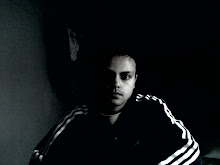All around me are familiar faces
Worn out places, worn out places
Bright and early for their daily races
Going nowhere, Going nowhere
And tears are filling up there glasses
No expression, No expression
I find it hard to tell you
I find it hard to take
When people run in circles
It’s a very very mad world
These lines by Gary Jules aptly describe our existence in this world. This existence which I call as “toothpaste life”. Toothpaste life because we are all like a toothpaste in a tube. The pressure of environment and society presses us all through the same nozzle and we all come out exactly the same shape as the nozzle. We are born, we go to school, all are thoughts are molded by text books, by morality of wrong and right. Can we become conquerors like Alexander or may be Buddha or perhaps a Gandhi. No, we can only make a generation of engineer or doctors.
Do we exercise control over actions and decisions. Do we really have the “free will”? Or is it that all current and future events are caused by past events combined with laws of nature. We can look at the existence of free will through different screens or lenses.
Let us start with the lens of Philosophy. Let us imagine we are responsible for a situation S. It must me caused by some situation S-1 and so we must be responsible for it. Now this also must be caused by a situation S-2 and so on and so forth. But there must be a beginning to this causal chain. And we cannot be responsible for our own beginning. So free will is absurd. There was an attorney who pleaded the innocence of his client by saying that the boy is not his own father or mother, he did not will his surroundings and make himself. He did not make himself and yet he is compelled to pay.
If we see through the lens of physics, it pictures the universe to be deterministic. It is only a matter of gathering sufficient information for predicting future events with sufficient accuracy. This entrails that free will is an illusion. But the quantum mechanics predicts in terms of probability, but the free will is still absent.
If we take the lens of genetics. There have been heated debates over ‘nature versus nurture’. The relative importance of genetics and biology to culture and environment. Human nature can be predicted in terms of brain, genes, evolution and environment all confirm the absence of free will.
In neuroscience, scientists have conducted experiments on human brain. In one such experiment people were asked to move right hand or left hand and their brain activity was noted. It was found that they took decisions in sub-conscious even before they willed in conscious. Also, right handed moved their right hand 60% of times. But with magnetic stimulation on right hemisphere they moved their left 80% times. Thus they had an illusion of free will while their decision could be manipulated. There are medical syndromes which show the absence of free will, like Tourettes syndrome in which people involuntarily speak words or alien hand syndrome in which a limb takes its own control.
We can take the screen of religion or theology. In Hinduism, karma theory requires us to both pay for past and our actions to be free enough to allow for future reward. In Buddhism also takes the middle path between causality and ‘free will’. Jewish theology stresses that soul can make a free choice through Yachid, the connection between soul and god. Islam also mixes human free will with Gods jabr, or commanding power. None of religions give absolute free will coz that would deny the existence of God.
Finally, no matter which screen we take it always questions the presence of free will. Our toothpaste life seems to be similar to the myth of Sisyphus in Greek mythology. Sisyphus had once deceived gods and cheated death. He was condemned to roll a stone up a hill for eternity. This pointless task is similar to what we ever will be doing in our life.
Scott Adams sums it all up as:
Free Will is an illusion, we choose the perceived path of greatest pleasure.
Sunday, August 26, 2007
Subscribe to:
Post Comments (Atom)

No comments:
Post a Comment